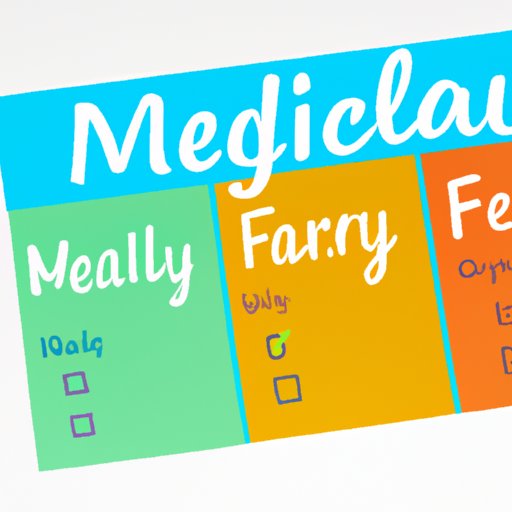
Introduction
When it comes to nutrition, there are many different opinions on how many meals one should eat in a day. Some experts advocate for eating three meals a day, while others suggest that six small meals is ideal for optimal health. With so much conflicting advice, it can be hard to know what’s right for you. In this article, we’ll debunk the myths surrounding meal frequency and explore the pros and cons of different meal frequencies. We’ll also provide you with tips on how to create a meal plan that works best for your lifestyle and body.
The Debate on Meal Frequency: Are 3 Meals Really Enough?
For many, the standard has always been to eat three meals a day. This meal frequency follows the belief that breakfast, lunch, and dinner are the three essential meals that provide enough energy and nutrients for the day. Eating three meals a day is easy to plan, and it can be convenient for those with busy schedules.
However, eating only three meals a day can lead to hunger between meals and larger meals that can result in overeating. To make three meals a day work for you, consider incorporating healthy snacks that will keep you feeling full between meals.
Do You Need to Eat 6 Meals a Day for Optimal Health? Here’s What Science Says
The traditional three meals a day approach was challenged with the rise of the six small meals a day diet. The idea here is to eat smaller meals more frequently to keep the metabolism active and blood sugar stable. While this approach may work for some, it may not be viable for everyone. Planning six meals a day can be time-consuming, and it may not fit into everyone’s lifestyle.
While the idea of boosting metabolism and balancing blood sugar levels seems promising, the drawbacks of this method cannot be ignored. It’s important to find what works best for you, and if six meals a day is too much, don’t force it. Meal prepping can help you stay on top of your meals and save you precious time.
Breaking Down the Pros and Cons of Eating 4 Meals a Day
Eating four meals a day can be a good compromise between three and six meals a day. This meal frequency can help eliminate hunger between meals, and it can help you consume smaller meals that are more manageable.
However, like the other approaches, four meals a day may not work for everyone’s schedule, and it can still be time-consuming to plan. You can adjust meal timing to fit your schedule. For example, some people may prefer eating breakfast early in the morning and have their last meal before bedtime. Others may choose to skip breakfast and start their day with lunch.
Finding Your Ideal Meal Frequency: Tips for Creating a Meal Plan That Works for You
Your ideal meal frequency should depend on your lifestyle and body. Don’t feel pressured to follow strict meal frequency rules that may not fit your schedule. Instead, listen to your body and pay attention to your hunger cues.
Experiment with different meal frequencies to find what suits you best. You can also plan your meals in advance, which can help you stick to your routine and save you time.
Remember that balance is crucial, and don’t get too caught up in the idea of meal frequency. Instead, focus on making sure your meals are nutritious and balanced. Incorporate fruits and vegetables, lean proteins, and limit processed foods.
Conclusion
In conclusion, there’s no one-size-fits-all when it comes to meal frequency. Different meal frequencies work for different lifestyles and bodies. Experiment with different frequencies to find what suits you best.
Remember to prioritize quality over quantity. It’s not just about the number of meals you eat; it’s about the quality of those meals. Eat a balanced and nutritious diet, and you will feel the benefits regardless of how many meals you eat in a day.




